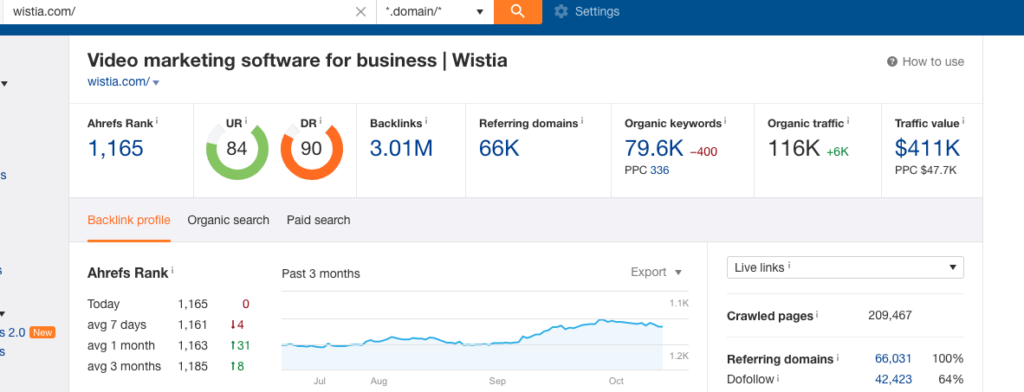For better or worse, I’m a numbers person. I regularly think about new decisions in terms of ROI – how much will I put in, and what will I get out of it.
For example, I want to start a new business where I’ll buy employee shares in fast growing companies. One of the first things I did was open excel to figure out a conservative and upside scenario for how much I’d spend on costs buying/selling, and potential returns given my strategy.
I’ve done this with newsletter subscribers, content strategies, sales lists, etc. It all comes down to numbers, right?
No, it’s not all about numbers!
A few years ago I had the pleasure of getting to know Chris Savage at Wistia. He’s a smart guy who’s built a pretty impressive business. And, I think he lives in spreadsheets a lot less than me.
I was in the early days of starting a business then, and was investing my time into blogging, while seeing very little results. No traffic spikes, no leads, no ROI.
Chris told me that when they first started blogging at Wistia, they experienced something similar. But, he knew things were working when he went to conferences because (smart/important/industry leading) people would recognize him and say “hey – I read your blog, it’s really good.”
The data didn’t say his blogging strategy was worth it yet. However, he had conviction because of the positive feedback he was getting from the right people. It would just take time to show up in the numbers.
He was right! Wistia has over 500,000 customers, and very enviable domain stats for the SEO nerds out there:

This reminds me a lot of a podcast I’d listened to a while back with Jason Fried of Basecamp who is also famous for building a large, profitable, bootstrapped SaaS business over the course of >10 years.
He said that he doesn’t look at the numbers for his business often. They use data all the time, but they are not obsessed with today’s revenues, or last week’s signups. Focusing on the metrics a PE/VC board member may have as top of mind can drive you a bit nuts.
Instead, his philosophy is that doing good work over a long period of time and looking for signals of success, even if it’s not hard numbers, to corroborate your focus leads to achieving whatever numbers based goal you may have perseverated over.
Seeing something similar
I’m glad I’ve listened to people like this. As I said, I’m a numbers guy, and I want to also be a disciplined person who kills what isn’t working quickly. Like any strength, it’s also a weakness.
The point here is that figuring out “what’s working” is an art in the early days of a venture. It’s part numbers, and part really smart people actually caring about what you’re doing as evidenced by remembering a blog and recognizing you at a conference. Or, other non-data based signals.
I’ve seen experienced something similar, although at a much smaller scale, with my Whiteboard Wednesday videos, and have also started to see similar signs as a double down on the SSR newsletter.
I hope this is useful advice for all the numbers people out there: look for signals outside of your spreadsheet, especially when in the early days of a venture doing things that don’t scale.

descargar iso windows 10
webp file
palabra del dia
imagenes epicas
michael myers
4p marketing
shrugging emoji text
najlepsze procesory
gris unsw
cara buat ote ote
one piece arcs
pornbub
iyibulut
r mensaxeria
gpu-z
adwcleaner
con mèo của schrödinger
avea.satis
como eliminar una hoja en word
stevonnie
emojis on mac
อัจฉริยะผู้สูญเสียศักยภาพ
flash player dejara de ser compatible
descargar facebook lite
لخخ
giải bóng bầu dục quốc gia
bootstrap sidebar
millas a kilometros
h plane tee
cuanto es un billon
najlepsze mmorpg
nombres creativos
lecteur mp3 sony
free.zimbra
inkognitomodus
robux
דולר אוסטרלי
como crear filtros en instagram
please check attached file
laura haddock filmler ve tv şovları
hija de eminem
avast premier ดีไหม
windows 10 kilit ekranı
mbr o gpt
eliminar una pagina en word
titans reparto
แปลงเพลง youtube เป็น mp3
19.99
โปรแกรมกําจัดมัลแวร์ ที่ดีที่สุด
reduce size of word document